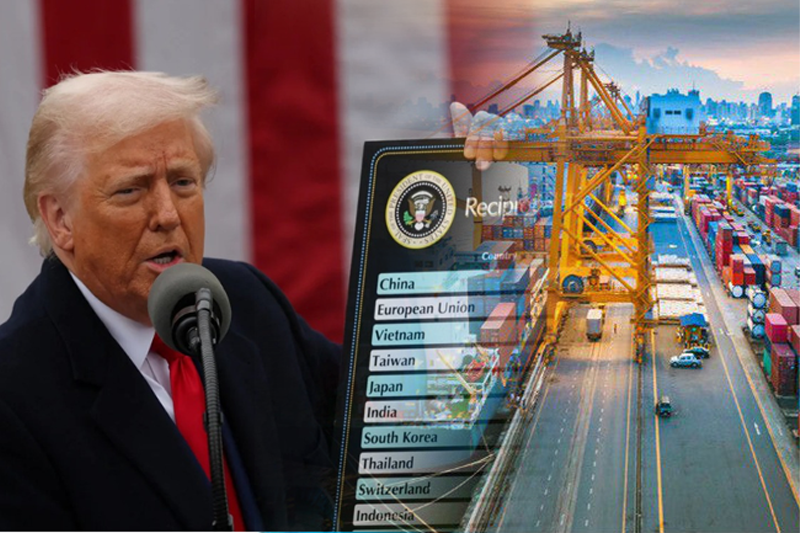US President Donald Trump has said he will consider ‘phenomenal offers’ to reduce tariffs imposed on the rest of the world, as Sri Lanka also eyes negotiations to reduce 44 percent tax that threatens to cripple apparel export firms in particular.
Trump aides had previously said that the tariffs were not negotiable.
Every Country Has Called Us’
“And those tariffs have come in, and every country has called us,” Trump told reporters in Air Force One Thursday.
“That’s the beauty of what we do. We put ourselves in the driver’s seat. If we would have asked some of these countries, almost most of these countries, to do us a favor, they would have said, no, now they’ll do anything for us.”
Sri Lanka’s Deputy Minister for Economic Development Anil Jayantha has said Sri Lanka is planning to talk to the US and try to reduce the Trump tariff. Sri Lanka is prepared to simplify tariffs which are complex, he said.
The 44 percent ‘discounted reciprocal’ tariff against Sri Lanka appears to have been set by dividing the trade deficit with the US with exports from Sri Lanka and halving it.
“The first thing is to try and understand the thinking behind the 44 percent tariff,” Anush Amarasinghe, Managing Director of BPPL Holdings, an exporter of brushware and polyester yarn said.
“Is it solely based on the trade deficit? Have other measures been considered? And then immediately start negotiations.”
Trump himself has said that it would take two years for a manufacturing plant to be set up in the US.
Countries with which the US has a trade surplus, including Singapore, were slapped with a 10 percent tax which appears to be for revenue purposes.
The US is facing a large budget deficit after money printing, inflation from operating an abundant reserve system (aggressive open market operations) and repeated bouts of stimulus recommended by macro-economists.
The US does not have value added tax like Europe and low import duties.
Unequal Taxes
Trump has frequently criticized income tax, which is now the top source of income, and referred to the pre-1913 US where there were higher border taxes and no income tax.
Income tax tend to penalize enterprise and hard work of the public and kill off capital.
Progressive income tax blatantly violates the principle of equal treatment of people before the law, and was unconstitutional in the US before 1913. The US constitution had to be changed to allow a the law to be applied in a discriminatory manner on the people.
The US wants to go back to manufacturing, though the country is now a leader in service and also has a services surplus with the rest of the world.
Analysts say when manufacturing first took off in Europe, there was criticism from nationalists and other ideologues (agrarianism/rural nationalism) who thought agriculture was the most important for a country, just as people think of manufacturing now.
Sri Lanka has just slapped a 15 percent income tax on services exports under an IMF program, killing investable capital while giving fertilizer subsidies to farming which is already protected by high tariffs.
Trump wants to reduce income tax.
Phenomenal
At the AirForce One reporters asked Trump what offers he would consider.
“Well, it depends,” Trump said. “If somebody said that we’re going to give you something that’s so phenomenal, as long as they’re giving us something that’s good.
“For instance, with TikTok as an example, we have a situation with TikTok where China will probably say, we will approve a deal, but will you do something on the tariff?
“The tariffs give us great power to negotiate. Always have. I’ve used it very well in the first administration, as you saw.”
It is not yet clear what countries that do not have anything ‘phenomenal’ to offer can do. Trump is trying to run the US like a private company, which is different from governing a country.
In a private company, mistakes are paid for by shareholders, but mistakes by the government, including by the central bank is paid for by the entire country.
Most East Asian countries which compete with Sri Lanka and had smaller trade deficits with the US in 2024 had ended up with still high and slightly lower tariffs.
Though some exports may survive for some time, Sri Lanka’s apparel industry says it is very vulnerable as the industry is very price competitive.


